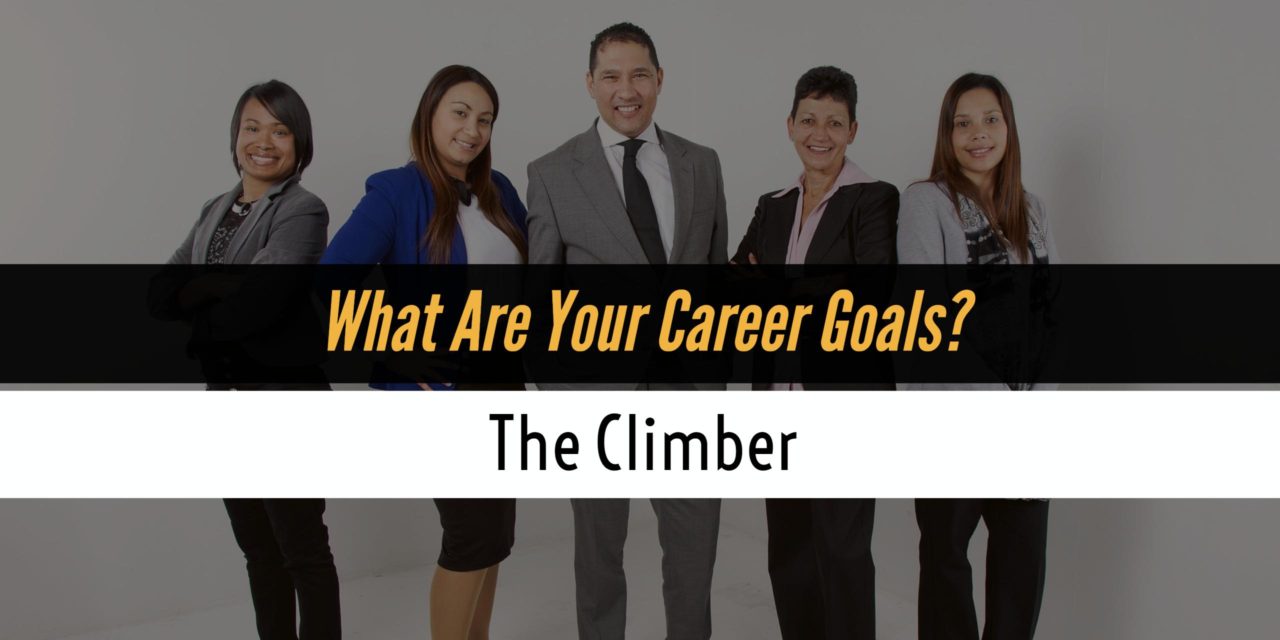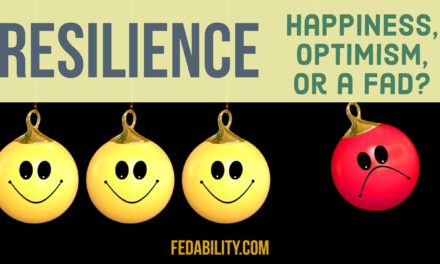Just over a month ago, I started a series of posts about 4 types of employees and their career goals. So far, we’ve talked about the SES-Hopeful, The Drifter, and The Satisfied. The fourth and final type of employees I’ll discuss is The Climber whose goal is consistent promotion through the GS ladder.
For this person career progression isn’t foremost about building a better government. It’s about status. It’s about pay. When I ask The Climber about career goals I hear something like, “I just want to get the next grade”.
You may have come to this page as an employee wondering what you need to get to the next grade. Or you may be a supervisor unsure how to develop (or if you should invest in) The Climber.
I’ll offer you some advice for when the focus is on getting the next grade promotion.
Career Goals of The Climber
The Climber can have a bad reputation. Very often they are seen as self-serving. They seldom seem like team players – unless they believe being a part of the team will help position them for grade promotions. They are going to want the highest visible projects with plenty of face-time with senior leaders. And even worse for some managers, The Climbers will have a relatively short tenure if there aren’t promotions available within the team. If The Climber ends up with a long tenure with no promotion in sight, they may become increasingly disgruntled.
And let’s be honest. These are true statements about nearly any Climber.
Here’s the good news though when a team has a Climber. The Climber is not willing to fail. This person isn’t someone who will let a high visibility project fail because it may impact their opportunity for promotion. Their focus is on exceptional performance.
Here are three suggestions for developing if you (or your employees) are focused on a grade promotion.
Really collaborate
Climbers aren’t known for their ability to work well in teams. A promotion in grade is an individual movement (not a team) and can be competitive (teammates may apply for the same job). As a result, working as a team and sharing credit (or blame) doesn’t always benefit The Climber. The careers of most Climbers can stall due to the enemies they create on the way up.
So, one area to develop if you want to move up is the ability to really collaborate. This means having good communication skills. Being able to negotiate for win-wins or compromises rather than a win-lose solution. Having the ability to receive critical feedback and integrating it into future products. And a particularly tough adjustment is to stop using “Yes, but…” and start using “Yes, and…” when listening to the ideas of team members.
Learn the skills of the next grade
Most Climbers do not believe there should be a limit on speed one moves up the ranks. This is particularly tough for The Climber due to the year-in-grade requirement before being eligible for grade promotions in the Federal Government. While The Climber is waiting out their year, it’s an opportunity to begin building the skills needed for grade promotions.
If you’re a Climber see if you can get a copy of the position description for the position desired. Does it mention specific skills you don’t have? See if there’s training you could take to gain those skills. Keeping in mind that sometimes that means investing in yourself. Does it describe experiences you need to have? Perhaps there’s a project you could lead or a stretch assignment you could take on.
This year of waiting is also an opportunity to build relationships. Some skills you cannot gain through training or stretch projects. Find a mentor or sponsor to help navigate those situations that normally take years of experience to learn.
Develop your presence
Presence is a skill that some people naturally come by. But when someone doesn’t have presence it’s difficult to 1) tell them and 2) help them.
What is presence? It’s that sense of poise or self-assurance you get when you are meeting someone who ‘owns the room’. In most cases, the advice you get to improve your presence is physical adjustments like your posture. Or by projecting your voice when speaking or using a slightly deeper voice when speaking. Another common piece of advice to develop presence is how you dress. The norm for professional attire will differs based on regions and the culture of your agency, but my favorite blog on what to wear is Capital Hill Style.
But here’s what you really need to build your presence as you get higher into the grades: the ability to connect with others and communicate authentically from knowing yourself and what you believe in. I had the opportunity to hear the author of the book, Own the Room: Discover Your Signature Voice to Master Your Leadership Presence, and will never think of presence the same way. Her emphasis on understanding core strengths and tendencies to develop presence was a new perspective for me.
This concludes the series on the 4 types of employees I frequently meet when discussing career goals. Each have their strengths and offer different value to our workforce.
What types have you seen that I didn’t mention? Are there other development recommendations you’d offer? Share your advice in the comments below!
Like this post? Consider signing up for our weekly newsletter. Each week you’ll get updates on our newest posts. You’ll also receive access to our newest free give-aways. I promise not to spam you or sell your contact information to anyone.





